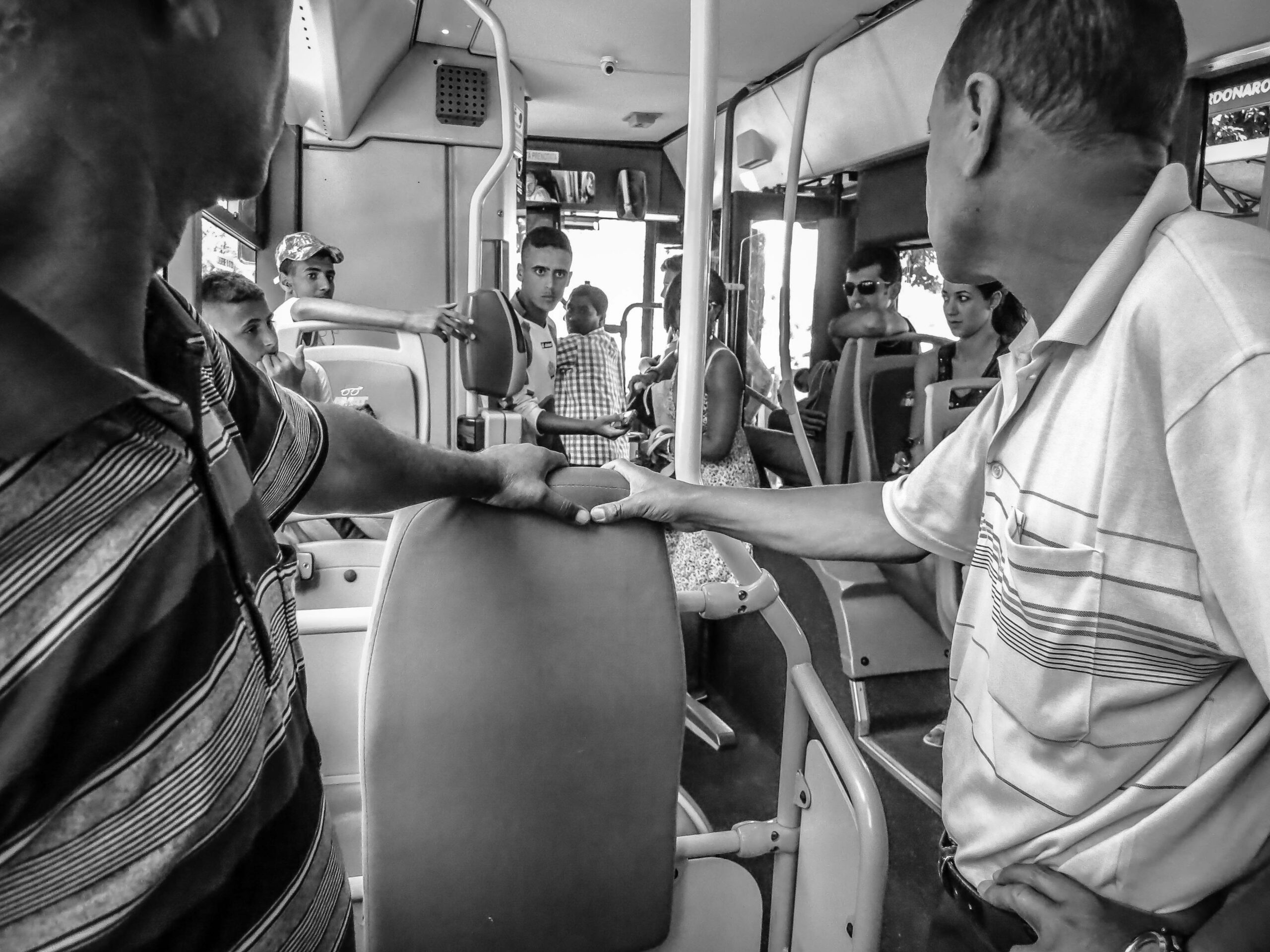by Victor Garate
I stood rooted in place when I saw my dad waiting for me outside my high school building, his hands stuffed in his pockets to stave off the October chill. It felt strange to see him again after I, a thirteen-year-old at the time, believed he would be gone forever.
The only reason I didn’t feel overwhelming shock was because I had seen him earlier that morning as I walked with my cousin to school. My dad stood by the front door, wearing the same beanie and jacket he wore now, speaking to a school staff member, most definitely asking about me. He didn’t notice me then. I turned my face away from him as I hurried inside the building.
That was when shock and disbelief hit me. And throughout the school day, the thought of my dad waiting for me outside loomed in my mind, and so did the fear that accompanied that thought. I told my cousin as we scaled the school’s narrow staircases, “I think I saw my dad outside.”
Seeing him again, I almost wanted to walk away. Stroll straight past him and pretend I didn’t know him. But I didn’t do that. I moved toward him, slowly, with my hands in my pockets, taking in a deep but quiet breath.
As he usually did when greeting me, my dad held the back of my neck and planted a kiss on my forehead. I didn’t greet him back.
“Hi, son,” he said. I can’t remember for certain that he was smiling.
“Hi,” I said. And then, “Where have you been?”
“Let’s talk somewhere in private.”
Although I didn’t say it (and in fact, I would never tell him this), I thought about the month in which I truly thought I would never see him again. The month in which I called him many times, hoping to hear his voice but only hearing the automated one from his voicemail. The month in which, despite insisting to my mom that I was okay and that I didn’t need to talk about it, I broke down in tears while on a phone call with a friend. The month in which I worried about how my mom was going to pay the rent without my dad’s income, so I told her, “I don’t want to go to soccer practice anymore,” and she responded, adamantly, “You’re going to that practice.”
But it was also the month in which I felt free. I could, without preamble, hang out with my friends. As I was growing up, my dad would often question who and when I hung out. Whenever he questioned the type of people I hung out with, I’d employ the same tired defenses like, “Don’t worry, they are good people,” and, “they would never get me into drugs or alcohol. I’m not into that stuff anyway.” It’s obvious to anyone why I enjoyed this new found freedom. But I kept these feelings hidden away; even, to a certain extent, from myself.
My dad and I walked to the corner store across from school and stopped beneath its awning. I can’t remember all the words that were said, only snippets. But I know at some point I asked,
Why did you leave? Why did you lie? And then sadness overtook me. I was sobbing against him, feeling the fur of his jacket, my breathing coming shallow and fast. I didn’t care that students from my school were walking by, and that some of them would recognize me.
As if to appease me, he’d say things like, “I came back because I care about you and your brothers,” and, “If I was a bad father, I wouldn’t have come back at all.”
Over and over I repeated the same questions. Why did you leave? Why did you lie?
At some point, my dad wrapped his arms around me. But when I looked up at his face, I didn’t really see a sympathetic expression there. He looked how he often looked whenever he was stuck and didn’t know what to say, his mouth slightly open.
The thing was, I knew why he left. I knew he had gone back to his home country of Ecuador to wed the mistress he swore he never had. But his refusal to answer my questions angered me. I wanted him to rationalize his decision to leave behind my brothers and I.
Finally, my dad said, “Don’t worry. I will tell you everything one day.”
He wouldn’t. The following week as my brother and I sat across from him at a local cafe, we confronted him about his lying. He wouldn’t really answer. In fact, he would deny ever promising to give me answers in the first place. Instead he said, “I only said we were going to talk, that’s all.”
The one thought that came to me then, and that persisted afterward, was, How could someone lie so much? I cried in that cafe, too.
I suppose there was not much else to explain anyway. He left because he loved someone else, and he didn’t say anything because he didn’t have to. My mom and dad’s relationship was broken long before he left. He just finally decided to act. He decided to ditch his age-old idea that a mother and a father were needed in a child’s life, even if the relationship between the mother and father was toxic. Even if the relationship between the mother and father had long since turned abusive.
I now know (or I think I know) that by lying to me, he was trying to avoid confronting his own choices. Although he would never admit it, he didn’t want to feel shame and he certainly didn’t want to deal with my pain. He didn’t know, and still doesn’t know, how to maneuver other people’s feelings. How to reconsider his own choices after someone else challenges them. So he lied. He lied about telling the truth.
Victor Garate majors in journalism at LaGuardia Community College. He will graduate this semester and hopefully go on to earn his bachelor’s degree.

